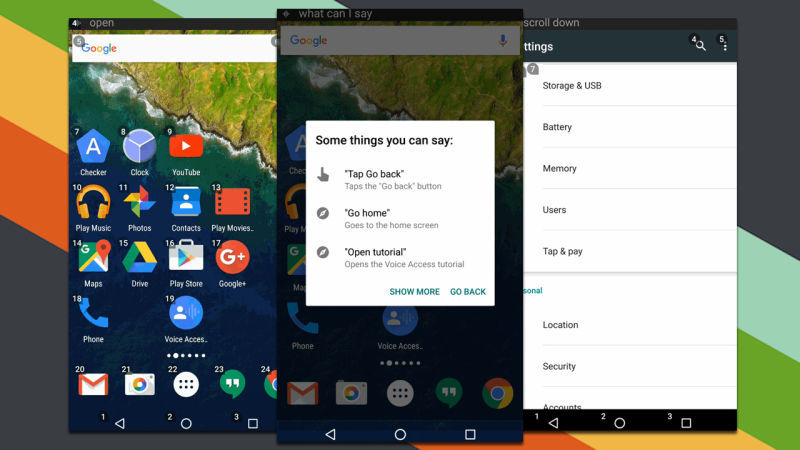
The New Voice Access Feature Helps Those with Severe Motor Impairment
Katherine Pendrill — May 24, 2016 — Tech
References: lifehacker & fastcodesign
Google's recently developed a new accessibility feature called Voice Access that helps those with severe motor impairment perform daily tasks. While many people already use voice assistants such as Siri to perform simple functions on their smartphone, Google is aiming to use the same technology to help those who need it the most.
Announced this week during I/O 2016, Voice Access is a new feature that allows those with severe motor impairment to control every single function of their smartphone with nothing but their voice. To use the feature, users simply activate Voice Access through the Okay Google command. Once the feature is turned on, it allows users to perform different functions by reading numbered commands, which replace traditional tap targets. This means that users can access any smartphone feature without ever touching their device.
The new feature demonstrates how voice recognition technology can be used to make digital devices more accessible to those with physical impairments.
Announced this week during I/O 2016, Voice Access is a new feature that allows those with severe motor impairment to control every single function of their smartphone with nothing but their voice. To use the feature, users simply activate Voice Access through the Okay Google command. Once the feature is turned on, it allows users to perform different functions by reading numbered commands, which replace traditional tap targets. This means that users can access any smartphone feature without ever touching their device.
The new feature demonstrates how voice recognition technology can be used to make digital devices more accessible to those with physical impairments.
Trend Themes
1. Accessible Voice Assistants - Advancements in voice recognition technology to increase digital device accessibility for those with physical impairments.
2. Voice Command Navigation - Using numbered voice commands to navigate digital devices without physically touching them.
3. Assistive Technology - Developing technology to help those with severe motor impairment perform daily tasks more easily.
Industry Implications
1. Smartphone Manufacturing - Manufacturing companies can incorporate Voice Access feature on their smartphones to attract consumers who value accessibility.
2. Healthcare - Healthcare providers can use Voice Access feature to help those with physical impairments improve their quality of life and independence.
3. Assistive Technology Development - Technology companies can develop more assistive technology to aid those with physical impairments in other areas of their life.
1.3
Score
Popularity
Activity
Freshness























